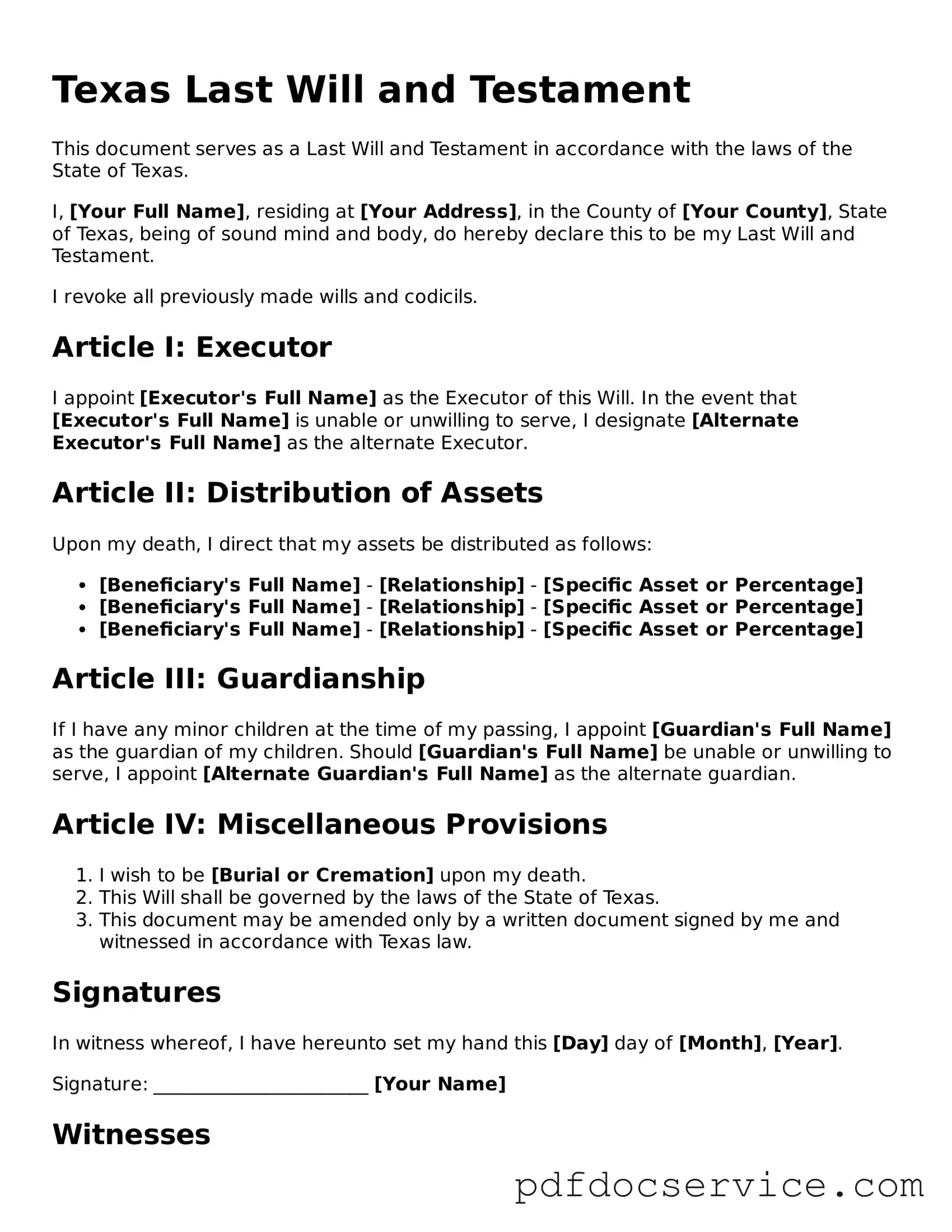What is a Texas Last Will and Testament?
A Texas Last Will and Testament is a legal document that outlines how a person's assets and affairs should be handled after their death. It allows individuals to specify who will inherit their property, name guardians for minor children, and appoint an executor to manage the estate. This document ensures that your wishes are respected and can help avoid disputes among family members.
Who can create a Last Will and Testament in Texas?
In Texas, any adult who is at least 18 years old and of sound mind can create a Last Will and Testament. This means that the person must understand the nature of the document and its implications. Additionally, individuals who are married or have children often find it beneficial to have a will to ensure their loved ones are taken care of according to their wishes.
What are the requirements for a valid will in Texas?
To be considered valid in Texas, a Last Will and Testament must meet several criteria:
-
The will must be in writing.
-
The testator (the person making the will) must sign the document.
-
The will must be witnessed by at least two credible witnesses who are at least 14 years old and not beneficiaries of the will.
While handwritten (holographic) wills are allowed, they must still be signed by the testator and show the testator's intent. It's advisable to consult with a legal professional to ensure all requirements are met.
Can I change my will after it has been created?
Yes, you can change your Last Will and Testament at any time while you are still alive and of sound mind. To make changes, you can either create a new will that revokes the old one or draft a codicil, which is an amendment to the existing will. It’s important that any changes are made in accordance with Texas law to ensure they are legally binding.
What happens if I die without a will in Texas?
If you pass away without a will, your estate will be distributed according to Texas intestacy laws. This means that your assets will be divided among your heirs based on a predetermined formula, which may not align with your wishes. Additionally, without a will, the court will appoint an administrator to handle your estate, which can lead to delays and additional costs for your family.
How do I ensure my will is properly executed?
To ensure that your Last Will and Testament is properly executed, consider the following steps:
-
Choose a reliable executor who understands your wishes and is willing to take on the responsibility.
-
Have the will signed in the presence of two witnesses who meet the legal requirements.
-
Store the will in a safe but accessible location, and inform your executor and family members where it can be found.
-
Review your will periodically, especially after major life events such as marriage, divorce, or the birth of a child.
Taking these steps can help ensure that your will is executed smoothly and according to your wishes.

